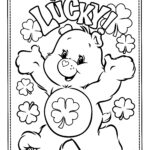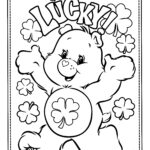A fundraising mechanism frequently employed at sporting events, including those of a major league baseball team based in California, operates on a simple principle. Participants purchase tickets, and half of the total proceeds collected are awarded as a cash prize to a randomly selected ticket holder. The remaining portion of the funds generated is typically directed toward charitable initiatives supported by the organization hosting the event.
This type of drawing offers a dual benefit. It provides attendees with an opportunity to win a potentially significant sum of money while simultaneously contributing to community betterment. Historically, these raffles have proven to be effective tools for organizations to raise funds for various philanthropic endeavors, enhancing their community engagement and social responsibility efforts. They can foster goodwill and positive public relations.
The structure and operation of these fundraising events provide a framework to analyze the logistics, regulations, and impact associated with charitable giving within the context of professional sports. Further discussion will explore the specific details of such a raffle, including its rules, prize distribution, and the beneficiaries of the funds raised.
1. Charitable Beneficiaries
The recipients of the funds generated through the San Francisco Giants’ 50/50 raffle are integral to its purpose and public perception. These beneficiaries, often local non-profit organizations, directly benefit from the proceeds, allowing them to further their missions in areas such as youth development, education, or community health. The selection of these organizations is a strategic decision that impacts the team’s community relations and the overall success of the fundraising initiative.
For example, a portion of the raffle proceeds might be directed towards a local Little League organization, providing much-needed funding for equipment, field maintenance, or scholarship programs. Another beneficiary might be a non-profit focused on providing educational resources to underprivileged children in the Bay Area. The specific allocation percentages may vary depending on the agreed-upon arrangements with each organization and the overall needs of the community.
The choice of charitable beneficiaries contributes significantly to the credibility and appeal of this fundraising tool. Transparency in the selection process and a clear demonstration of the positive impact on the chosen organizations are essential. This reinforces the connection between the team, its fans, and the community, solidifying the raffle as a mutually beneficial endeavor. Challenges may arise in balancing diverse community needs and ensuring equitable distribution of funds, requiring careful consideration and strategic planning.
2. Regulations and Compliance
Adherence to regulatory frameworks is paramount to the integrity and legality of charitable raffles, including the type associated with a major league baseball team in San Francisco. Strict compliance with applicable laws ensures transparency, accountability, and public trust, thereby safeguarding the interests of both the organization and its supporters.
-
State Gaming Laws
The operation of a raffle is subject to state-specific gaming laws, which govern aspects such as licensing requirements, ticket sales procedures, prize limitations, and reporting obligations. These laws are designed to prevent fraud, protect consumers, and ensure that a portion of the proceeds are genuinely directed toward charitable purposes. Non-compliance can lead to substantial fines, legal action, and reputational damage.
-
Tax Implications
Both the organization conducting the raffle and the winner of the grand prize are subject to tax regulations. The organization must properly account for the raffle revenue and report it according to IRS guidelines. The winner may be required to pay federal and state income taxes on the prize money, potentially influencing the net financial benefit received.
-
Transparency and Disclosure
Clear and accessible disclosure of the raffle’s rules, odds of winning, and the allocation of proceeds is essential for maintaining public confidence. The organization should provide detailed information regarding the charitable beneficiaries and the specific programs or initiatives supported by the funds raised. This transparency promotes accountability and reinforces the credibility of the fundraising effort.
-
Auditing and Record Keeping
Maintaining meticulous records of all ticket sales, expenses, and prize disbursements is crucial for internal control and external auditing purposes. Regular audits can help identify any discrepancies or potential violations of regulatory requirements, allowing for timely corrective action. This rigorous record-keeping ensures that the raffle operates with the highest standards of integrity.
The confluence of these regulatory elements shapes the operational landscape of the charitable raffle. A comprehensive understanding and diligent adherence to these regulations are essential for the continued success and positive impact of the fundraising endeavor, ensuring that the baseball team can contribute meaningfully to the community while maintaining its legal and ethical standing.
Tips for Participating in the San Francisco Giants 50/50 Raffle
Maximizing potential benefits and minimizing potential pitfalls necessitates a strategic approach to the fundraising drawing.
Understand the Rules: Prior to purchasing tickets, familiarize yourself with the specific regulations governing the raffle, including the prize distribution method, drawing time, and claim procedure. This knowledge can prevent potential misunderstandings and ensure a smooth participation experience.
Budget Accordingly: Determine an appropriate spending limit for ticket purchases, ensuring that the investment aligns with personal financial constraints. Engaging responsibly avoids the development of problematic gambling behaviors and preserves the charitable spirit of the activity.
Know the Beneficiaries: Familiarize yourself with the charitable organizations supported by the raffle proceeds. Understanding the causes being supported adds a layer of meaningfulness to participation and reinforces the social good aspect of the event.
Retain Your Ticket: Securely retain your ticket stub until the winning number is announced. Meticulous preservation ensures eligibility to claim the prize should your number be selected, preventing unnecessary disappointment.
Verify Winning Numbers: After the drawing, promptly verify your ticket number against the official winning number. Prompt verification ensures timely prize claims within the designated timeframe.
Understand Tax Implications: Be cognizant of potential tax liabilities associated with winning a large raffle prize. Consult with a qualified tax professional to understand your obligations and plan accordingly.
Exercise Caution Against Scams: Be wary of unsolicited communications claiming you have won the raffle, especially if they request personal information or financial details. Verify any such claims through official channels to avoid falling victim to fraudulent schemes.
These guidelines offer practical strategies for engaging in the fundraising activity responsibly and maximizing potential benefits, fostering a positive experience that supports both personal enjoyment and community welfare.
Further exploration of the San Francisco Giants’ community engagement efforts can provide additional context for understanding the overall impact of these charitable initiatives.
Conclusion
The preceding analysis has detailed the San Francisco Giants 50/50 raffle, examining its operational structure, charitable impact, and regulatory landscape. It highlighted the dual function of this fundraising mechanism: providing entertainment and potential financial gain for participants while simultaneously supporting vital community initiatives. The success of this raffle hinges on adherence to legal frameworks, transparency in operations, and a commitment to fulfilling its charitable mission.
Moving forward, continued scrutiny of such fundraising activities is crucial to ensure accountability and maximize community benefit. The San Francisco Giants 50/50 raffle serves as a case study for exploring the intersection of professional sports, charitable giving, and regulatory compliance, emphasizing the need for ethical practices and a demonstrable commitment to social responsibility.









